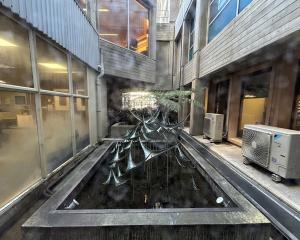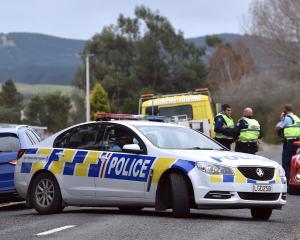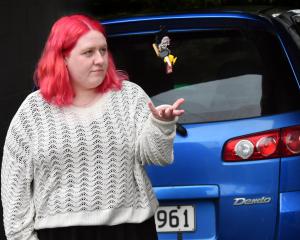The University of Otago graduand is a native of Kiev, the capital city where her mother and brothers live.
Mrs Shevtsova said she was worried about a Russian incursion into Ukraine from Crimea, where Russian military forces were based after an armed intervention.
''It's not good what Russia is doing; it will be another war. It's similar to what we had with Georgia in 2008, and I wouldn't want to see that happen,'' she said.
Mrs Shevtsova spoke frequently with her family in Kiev and for the time being they were safe.
''The situation in Kiev is pretty stabilised. I hope they stay safe there.''
She grew up in Kiev when Ukraine was part of the Soviet Union and there was not as much division between Ukrainians and ethnic Russians.
If the Russian army ventured into western Ukraine, things would become ''unpredictable'' and dangerous, Mrs Shevstova said.
She had moved from Ukraine to New Zealand in 2001, in the footsteps of her sister.
New Zealand's beauty and tranquillity appealed to the Eastern Europeans, she said.
They first lived in Auckland and, after five years, Mrs Shevstova moved to Dunedin.
She has just finished her PhD in neuroscience, and last visited Ukraine in 2011.
Former Otago journalist Jared Morgan has made Kiev his home and said there was divided opinion in the capital about Russia's possible invasion.
''It's very mixed. There are people who are declaring the worst and others saying it's not so bad.''
Mr Morgan said many people in Kiev were still mourning those killed in the recent political upheaval.
Most ethnic Russians lived in eastern Ukraine, including the Crimea, and Mr Morgan said it was likely Russian control would be limited to that part of the country.
''Russia wants to protect its interests there. Yes, it might get ugly, but my personal view is it won't spread to the rest of the country,'' he said.
University of Otago politics lecturer Dr James Headley said he had found the speed with which Russian President Vladimir Putin sought parliamentary permission to invade Ukraine surprising.
He, too, said the gravity of the situation depended on whether Russia limited its incursion to the Crimea.
An attempt at widespread control would evoke condemnation and sanctions from Western powers, Dr Headley said.
''It's the closest the country has been to major conflict in a long time. Putin doesn't want to be seen to be weak or back down, but Russia stands to lose a lot.''
A specialist in Russian foreign policy and the European Union, Dr Headley said an all-out war was unlikely, but sanctions would be potentially crippling for Russia and would have indirect impact on trade and economics throughout the West, including New Zealand.
''It would be like the Cold War again where we see that level of hostility between Russia and the West.''
Advertisement













